Tending the Cracks and Shifts: On Loops of Infinite Reception
Over the course of Nora Khan’s year as Editor-In-Residence, we’ve heard an eclectic group of visionary artists ruminate, postulate, and present facets of their praxis that ground the embodied craft of maintenance. For women writ large (trans, cis, nonbinary, et al.) and across centuries, the maintenance of creativity has been inseparable from that of survival—composed of experimentation, play, subversion, intervention, and grief—the ongoing virtuosities necessary to remain here in the face of patriarchy, colonialism, capitalism, and eco-destruction. As Nora’s Editorial Fellow, i’ve been thinking about her curatorial frame, and its always (re) emerging upsurges, spanning generations. Among the many things we are born into, an unavoidable position within creation is that of the future ancestor. With this in mind, i invited four of my favorite artists—Stephanie Acosta, Kimberly Alidio, Adjua Gargi Nzinga Greaves, and Melissa Lozada-Oliva—to articulate what they might offer future creatives, from the imagined vantage point of ancestor. What insights might they voice across generations, looping time in what Greaves calls networks for infinite reception? The artists were given a set of constraints—two pages, two hours, the form open to interpretation, experiment, and play (lists, letters, poems, etc.)—with the hope that this small project might provide an opening to view experimentation and care in real time.
In the weeks leading up to publication, i’ve reflected on the relationship between narrative, linear time, and, generally speaking, European colonization across the globe. Perhaps this linear time is yet another categorical tool for organizing people, progress, acceleration (Sylvia Wynter). The prompt began to feel a bit naive. Luckily, these four artists must have felt something akin to this as well, and resisted offering hypothetical, positivistic advice to future artists with the complex, often contradictory, fragmented, and embodied pieces you’ll experience below. As artists whose bodies work within the constraints and possibilities inherent in “woman,” each of these makers seem to view their work as a kind of devotional—a practice of embodiment always in motion, and therefore, always an experiment—a porous site where linearity collapses in blooms of possibility. This, i believe, is one definition of experimentation.
– imogen xtian smith
********
Much of this writing was done in bits, or pulled from longer pieces,
written over the course of 5 days in the woods, safely in a cabin, staring
into the fire, the future, and the page.
Turning inside-out is a fine way to inch toward the void.
Being multi- in a multi-crisis world.
Before the pandemic I worked for many years on a series of works concerning ecological breakdown, surveillance states, shifting horizons, a multi-crisis existence. The last two years’ sudden realities flooded the work in context and there was ultimately nothing to do but grieve and bury the work through practice and an exhibition that was part memorial. Real and imaginary near-futurism shared a shroud and everything was beautiful unarchivable glory.
The ephemeral never ceases to guide and interest me. Call it zen or self-sabotage, to spend a lifetime of practice leaning towards the unwitnessed for the sake of understanding. Is it possible I was over-prepared for the world that came for us? How do we know when we are conjuring? How can we tell when it’s simply a knowing.
I think a lot of Octavia Butler, always, but even more now. “Octavia tried to tell us” and so did many others whose voices of truth were confused for mythologies and stories. Why are we so prone to believe the absurd and reject the real? What metaphysical neuron clash is creating the constant dissonance felt by every or any thinking person wandering this landscape?
Let me be clear, I’m an optimistic anarchist—despair may be born in hope, but it doesn’t linger. There is always another piece to understand, tackle to the ground or let free. There is always work to be done. You won’t do all of it, not alone, not in your finite life. So get to the work of creating, living, supporting. And take care not to misunderstand their constructed rules for nature, or your limits for walls. These are likely ephemeral too, your limits.
In the studio we may ask “what is the point?” In the streets we may ask the same thing sometimes. Exhaustion is natural, you are generating and regenerating yourself, the world around you, your literal physiological self always shifting, and ideally, your existential mind will too. When were we promised stillness? Let’s ride, slide, and get going, follow, be pulled, lead, go in the undercurrent. You won’t do it all, so . . .
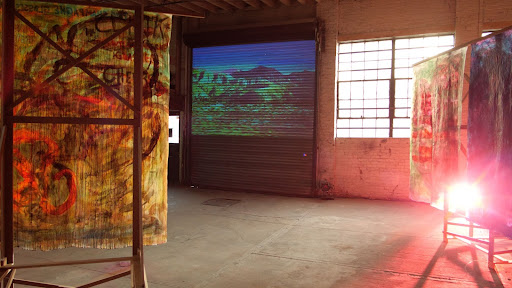
Often I pick up a paintbrush, jam it into some inexpensive watercolors and splash around on a piece of paper confronting the conversation between synthetic brush, grainy pigment, water, and the paper’s surface. Before long I relax. It could never be more than it will be, and I’m not a painter anyway, so who cares? Our practices can be modes of releasing long enough to unclench the answers we already have gripped, in our back muscles and grumbling gut.
I wish a melting for us all, understanding that the borders between me, you, this keyboard, that plant, are so thin that we may stop feeling the edges. Like sinking into water the same temperature as the air and your skin, sinking into togetherness. What is enraging you? Don’t illustrate it. Instead, can we roll around the femme mud? Will you do this daily, will you stay dirty with us?
++++++++++++++
Sometimes I can’t believe we’ve survived so much.
Sometimes I can’t believe how little we’ve had to survive yet.
Does revolution require blood? Maybe.
My rage needs tending–stoking, it’s at the center of my hearth. My warmth is not a candle, it’s a much less controlled flame.
I don’t know what to tell those coming; should it be directions, a warning sign, a Keep Out? Definitely not. I myself wouldn’t have listened to a single warning. What are prompts for prosperity in a desolate landscape?
I still believe in art. It is like a limb I can’t ignore, it’s there whether or not I imagine it so.
Not a phantom. A lurker.
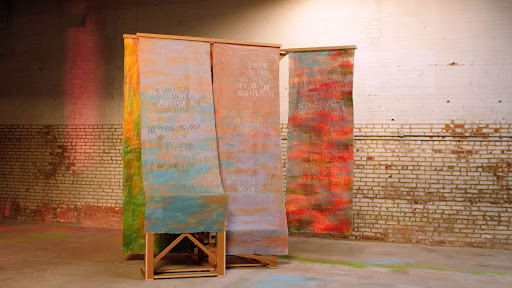
A creative mind is our right, like breath, love, hope. Creativity is not special but baked in, part of our makeup. The more we ignore it, the sicker we get. Tending. Like my rage.
++++++++++++++
I’ve been thinking about space
having it
giving it
going to it …
I’ve been thinking about skins
and surfaces
and topography
and layers.
I’ve been thinking about seeds
and seed
and wood
and wombs.
I’ve been thinking about lichen
and spores
and sores
and you.
++++++++++++++
The trauma of hope
desire
desperation
and suffocation.
Ascension and abundance
and surveillance
and assertions.
++++++++++++++
I’ve been thinking today about how the attentive literal can uncover the pulsing poetic. Non-judgmentally describing a landscape can be an incredible practice of presence, of listening, that strengthens the invisible curiosity of an artist, a scholar, a scientist, or a three year old. I’m
always reminding myself that we are not special. Artists are not the only ones thinking deeply. It feels important to demystify the isolation.
A week in the woods and I’m thinking about how the trees feed and the city revives, how I need them both, multiple, how I am always greedy in some ways. I want all the organic creatures to tell me more about how they see it all.
How can you create space for it to return? Your natural curiosity, goalless wondering and wandering?
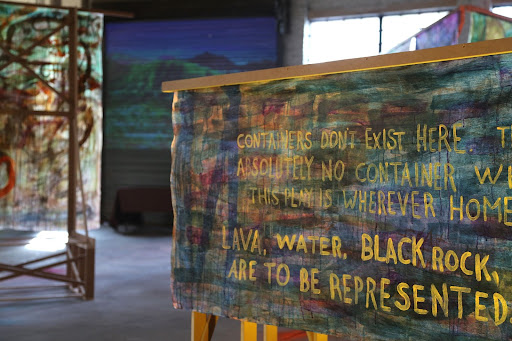
It is anti-capitalist to aspire towards these sorts of expansions. My refugee grandmother used to remind me all the time that the only thing they can’t take is what they can’t see you carrying. It’s true. They, them, those outside baddies, can’t force you not to wonder. And ideally this turning-over of information, experience, consideration, will reveal the boundlessness of their nature, and yours.
Expansion, not towards a resource-eating push outward, but as a fruitful fertile growth that is beyond holding, hoarding, beyond the material we have, is the direction. The “only lasting truth is change.”
As Octavia told us many times.
Will you reject branding,
Chasing the unholdable
For the chance to be greater
Than the sum of
Your witnessable parts?
++++++++++++++
I love watching fire
breathe
And fade and fight
for bright life and
burning hot
bellies.
++++++++++++++
I guess what I want for you, for us—and soon, and always—
Is that you make safer spaces for your mind; that you keep your rage tended and your radicality questioning; that you reject complacency and serving false masters before your people.
The world is rich with questions that need answers, and questions that need saying, and screaming. You are surrounded by an abundance of potential ways to tackle and detangle the times you will live through. Be in the mix, stay in the mix, stay more than mad, stay vigilant in care and curiosity. Attempt real solutions. Attend to the world around you and beyond you, because those ecosystems are what sustain and feed us all. You belong to them, and they belong to you.
Participate, practice, question, rage, explode, rejoice, rebuild, beginning always again.
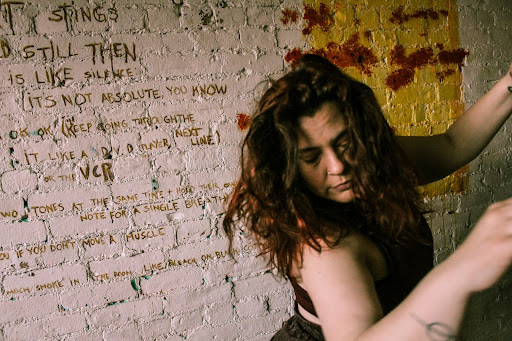
********
Once I wrote down the copy from the back of a book in my house and showed it to my parents. They were extremely impressed with me, thinking I had come up with all these complex sentences and descriptions by myself. When I showed them the book I copied it from they were fucking pissed. YOU CAN NEVER DO THIS AGAIN! They yelled, DO YOU HEAR ME? YOU CAN GET IN A LOT OF TROUBLE! NEVER COPY THINGS FROM ANYBODY EVER. I started to cry. I just liked the way the words looked and the way the pen felt in my hand. Just now I was writing down words from Surge by Etel Adnan, a writer who recently passed away, because in all likelihood I will not pick up her book again, and I want to remember words that particularly struck me. I want to feel how it felt for her, writing those words down. Have you ever copied something by accident? Have you ever told a joke and then realized that, actually, it was your best friend who said that, and, that actually, it was her dad who said it before her? Have you said, “Sorry, did I tell you this or did somebody else?” Sometimes my friends will tell the same story for the twentieth time and it just feels rude to tell them they already told me this, but it also feels rude of them, because aren’t I important enough to tell a new story to?
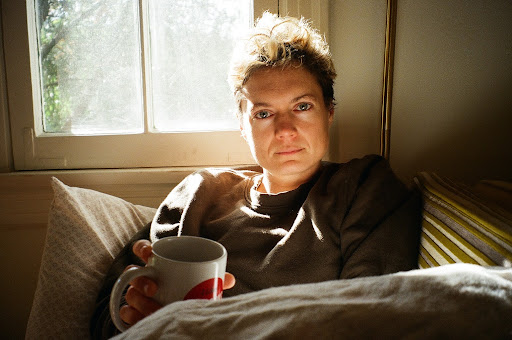
Being an artist is selfish but only because it requires time to yourself. You also have to be foolish enough to think you can survive this way, and you have to be able to never lose this foolishness. Logic has always gotten in the way of my dreams. My photography teacher, Mr. Morris, once said, “You don’t have to do anything but pay taxes and die.” Paying taxes represents a lot of things of course: all of the rules you must follow to continue being safe and housed in this country that doesn’t want to take care of its inhabitants. I do believe that you can do the bare minimum of this and still live a full life. And of course, we all have to die; thank god. One day I will be dead and this piece will maybe be floating somewhere like a crumpled up receipt in the cloud & that’s okay! Mr. Morris himself has since passed away, and I will always remember him gently shaking a student of his to say that, forever, and I’ll remember his large yellow glasses and corduroy pants, his converse sneakers, how he smelled like one million cigarettes at all times. Another thing he said about taking a photograph: how you can’t just take a photo of a sunset because down the street at the local tourist trap you can find that exact same photo on a postcard. Anyone can take a photo of a sunset, and it’s actually really lovely that there is something in all of us that is moved by the setting sun, but it’s the artist’s job to look harder, to see an abandoned bandaid in the dirt, to listen to a couple arguing nearby, to think about how disappointing the sunset is because you are no longer in love with the person who is watching it next to you.
Anyway, if you think about how those are the only two things that you have to do: pay taxes and die, the world really starts to open up to you. It is not required in this life to fall in love or to do your dishes for your roommate because they’re having a bad day, or to spend an afternoon on a Sunday cutting up magazines to make a collage nobody will ever see, or write a poem dedicated to the way somebody you’re obsessed with smells, or take a photograph of your best friend in the light at 5 PM on her balcony—but you should. You should because even though nothing matters, you still have a soul, and you might as well acknowledge it because in between the rules of living and your destination of death, you have the opportunity to make things.
There are people out there who want to be artists but simply have no ideas. Maybe they have amazing taste and maybe they have amazing input but when they try to make something themselves all they can think of is the glory and it’s just ugly. People like this should stop trying to be artists. This is my invitation to those people: just stop. There! You’re free! Go ride your fucking bike, go give your friend feedback on their latest manuscript, go be the person who laughs very hard at the insane story somebody came home with from work. That is special. That can be you! The world doesn’t need more artists. The world actually needs more readers and listeners. What the hell else is the point of making art if nobody is whole-heartedly enjoying it so much that they stop being a person, they completely lose themselves and just become floating eyes and ears and mouths taking it all in? There is glory in consumption. In licking the bowl clean. However, as an artist, it’s also important to find that part of yourself: the part that doesn’t want to make anything at all, but instead, asks for another helping and says thank you very much! To wonder how did they do that without actually trying to figure it out. I learned this while working at a bookstore because I was surrounded by a lot of Not Writers, people who simply loved to read and talk about reading, people who valued their privacy (imagine?) and found peace alphabetizing memoirs while listening to classical music. I, on the other hand, liked to read because I wanted to one day have people reading what I wrote, and I also liked to climb the ladders holding stacks of books while wearing short skirts because I wanted the love of my life to find me there, ass in the air, holding a lot of books I’ve definitely read. I’ve spent so much of this life hoping to be watched by somebody, forgetting how fun it is to be invisible sometimes and be the person gazing.
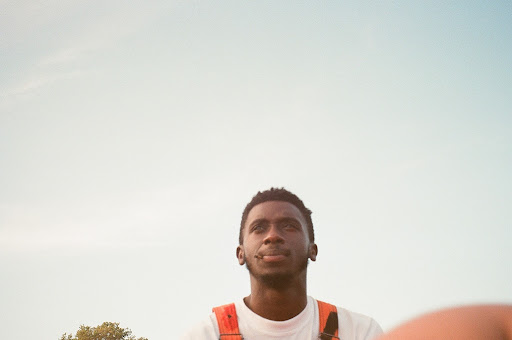
I worry that I am not going to be remembered, that whatever it is I’ve been writing will not last the test of time. Once, my dear friend was very moved by something Ernest Hemingway once said that she got it tattooed on her rib cage. While visiting our favorite bookstore, she opened up the Ernest Hemingway book because she wanted to see the quote she had dedicated a patch of skin to. “This can’t be right,” she said, “This must be a misprint.” We looked at another version of the book: it said the same thing. She had remembered the phrase the way she wanted to, and Ernest Hemingway had no control over that because Ernest Hemingway is dead. And now it’s kind of a funny joke and also a way of remembering exactly what she was going through at the time. We have no idea how we will impact what is beyond us, how somebody’s misunderstood niece will misinterpret what we wrote down about the first indoor dining experience we had after the pandemic. Isn’t it frustrating, realizing that you’re going through something and there’s nothing you can do about it except go through it?
I used to write in a hair-washing diary where I would recap my week every time I washed my hair. In 2020, the Quarantine Year (because perhaps every year after it is a pandemic year) I felt as if I was writing to myself in the past and also the future. My past self was asking my future self how things would be, and my future self was telling it how differently it turned out. It made me feel like a time traveler a little bit. There’s a particular entry that really breaks my heart where I say, very simply and with no frills, please tell me things are a little better wherever it is that I am because it’s fucking miserable here and every day is exactly the same please tell me I can see somebody else please tell me I can hug them please tell me that I am not wrong in feeling a little bit optimistic. I needed to ask that in order to be able to answer it now: things are indeed a little better, but also a little worse. I see people often and hug them, it is never a bad idea to look for hope—in fact, it requires greater emotional and intellectual depth to find a way out of things, or a way to make things work. It requires creativity to get through another day and that’s what you have!
So to you, my great-great-great-great grandniece who wants to be an artist: please tell me you are with a friend at a party you thought you weren’t going to go to but then you did. Please tell me you misspoke about something and the mistake is so deeply hilarious that you think you’re going to die because you’re laughing so hard. Please tell me your friend is rolling around the floor laughing with tears in their eyes because it sounded so absurd, what you just said. Please tell me you are getting up every day to do what you love to do in between all the things you are required to do. Please tell me about what distracted you: rescheduling a dentist appointment, the memory of somebody’s mouth on your neck, dealing with a broken jar of jam, your mom calling you asking what the password to something is, if there still are passwords or privacy at all, please tell me about a time you forgot about yourself because you were overcome by the beauty of what somebody else created. Because in the past I do need reassurance that life goes on, that somewhere in the future people are still looking for things to consume, and that you are there to make them.
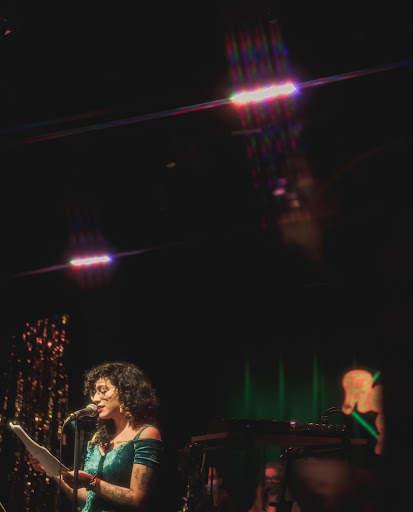
********
1.
I’m writing a book about the end of time. In the book, I say, “the end of history.” I probably mean the end of a conception of time. I should say, “I’ve reached the end of my belief in time.” Or: “this is the end of a kind of telling that assumes an unfolding of time.”
But I’m devoted to time. I like narrative & arc, although I dislike reading novels & watching movies. Complaining that movies have gotten so long just reminds me of my age. To be truthful, I don’t like continuities over several pages. It’s more than an attention-span issue: I just don’t believe any phenomenon continues without fundamental transformation threatening dissolution & unrecognizability; I think there are important intervals when the relationship, the investment, or whatever becomes unrecognizable, disorganized by perception & encounters with other phenomena.
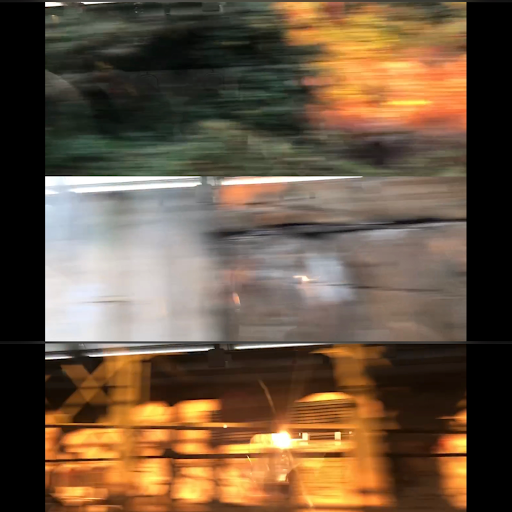
If you pay attention to the cracks & shifts of something alive, you might stay for its deaths & returns, even as it gets named & known & valued & commodified, becoming furniture in the room, put to work for something else.
2.
Being of service to other peoples’ agendas & fantasies keeps me from noticing jagged or smooth arcs of our shared assumptions. Instrumentalizing my being & doing expresses my fitful need for order, an inherited anxiety & predilection for control, a thrilling experiment gone too long in a life that would affirm & calm those anxious for my existence & anxious to assume my obligation. Any length of time spent being of use to others is not a meaningful experience of time.
Once in a while I live out a story, an arc of time, borne out of & meant for transaction, for pay-off. Once I said to you: “I could be/ I have been/ I am a thrillseeker & coward, seduced & conditioned the spectre of [art-world] opportunity, as speedy & as infinite as [———], doing what needs to get done, letting accumulative drive determine who & what shapes The Work, all just to see where a path goes through a public [art world], but would I then lose the thread of our subtle & dignified friendship grounded in a particular anti-institutional poetics of being on the wrong side of history & war, in our art dyke/genderqueer life of twinned obscurity/autonomy, and would/have I succeeded a bit more if I just had the knack for making a spectacle of The Work in a way that projects a persona compelling patronage & support, in a combination of evergreen and ephemeral ways that make it impossible to go on, just hanging around thinking & being in some kind of open conspiracy to persist in thinking & being?”
& to this you replied, “I love poets, I hate celebrities.”
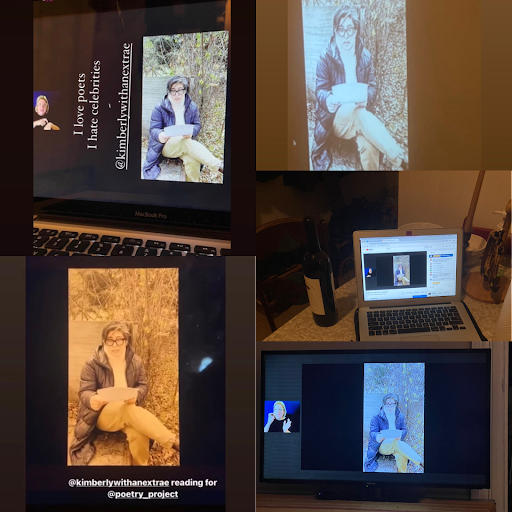
3.
The present has brought an end to any story I’ve told about myself & us & art. The present— my own & the one I think we share—, is a chaos of unceasing unfolding, shocks & awe, losses sounding a long precarity once contained by memory, the end of trust in the institutions that unfold time.
If I had to say, & I promised to do so, what sustains experimental thinking over time, I might say, ok, here are all time-based things that no longer do it for me: the drive to make, innovate, effect, mark, become, strike, or overcome; the high, thrill, absolute focus, calling, lineage, desire to be known, deepening your craft, communing with language, or lifelong friendships; the readings, shows, bookmaking, or ephemera; the trauma, haunting, transmissions, caring for elders, crushing your enemies, or seducing your crushes; the ethic & politic of mutual aid, evolution of theory, social movements, style, altered states, or recovery; giving back, staving off death, dancing with death, imagining otherwise, world-building, or representation; reparations, language revival, or language justice; the vow, content creation, influencing, ancestors, future generations, self-identified identities, unidentified identities, any history, historiography, or particular word.
Any career projection or retrospective could, & sometimes should, go into the art of being a being in these broken times, & what I might say is that just being a being, rather than putting your beingness to work in the guise of a set of questions or aesthetics or cultural capital, is experiment itself.
4.
When you attune to cracks, moments of illegibility, & the series of transformations affected by encounters with phenomena & perception in a dance of shifting positions & perspectives, a word alters directions, a flood arises with a sound, a touch, an image, & a life is living & time is.
Some people, some artists, experiment & investigate the ways they over time wield the world-building power of engaging a medium such as language to organize & disorganize meaning. Not enough people talk about this. Too many artists leave it to biographers & critics.
I just want to hear a writer say as boldly as any contestant on a reality tv show competition: “I’ve made myself into a [non-] person whose every aspect is a resource of fluctuating value, including the liberal imperative to reconcile brutal exploitation with some idea of being a private citizen of soft patriotic loyalty & social good, a person who takes & gives abuse, but hates it & has a really good excuse—anyway it doesn’t define who I am—& while I’ve given up on the random vitality of being in right relation to all the beings in my world, my work & success serves my community, family, & society at large by contributing to important conversations & showing young people that hard work & sacrifice & persistence pay off, & for these reasons I’m most deserving to win the prize.”
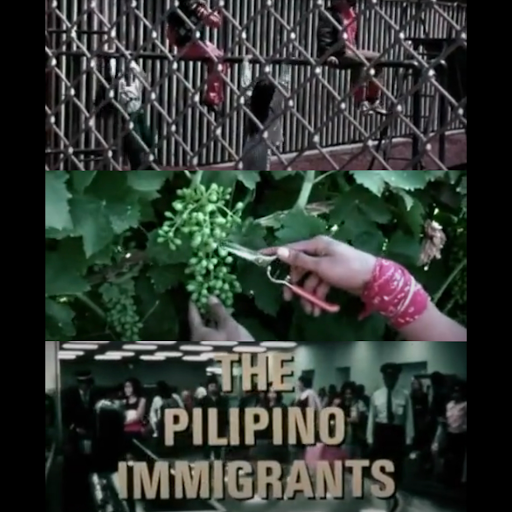
& then: “& it works for me.” Or: “So, now, what?” Especially: “Here’s where my being of use is relational in its flux & contingency …,” “Here are morbid transactions,” & “Here is a scatter, an interregnum, & an unfolding.”
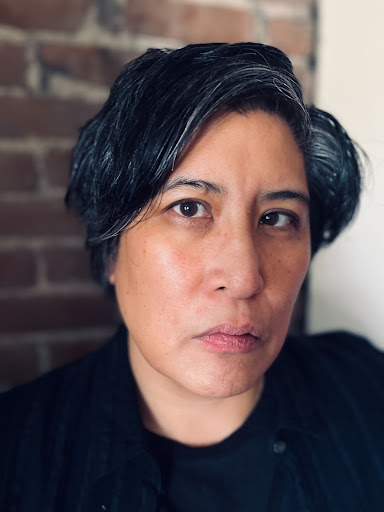
********
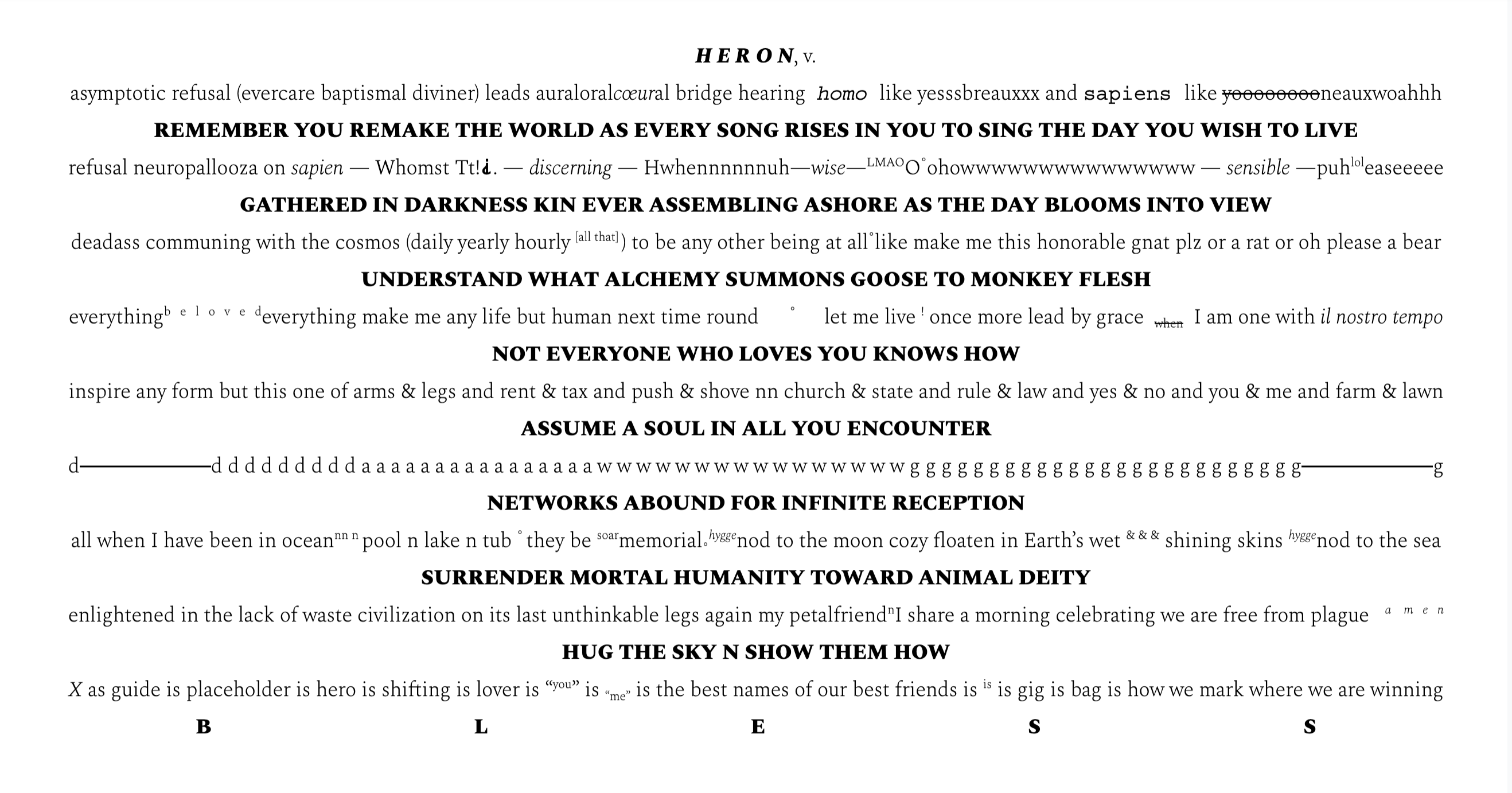
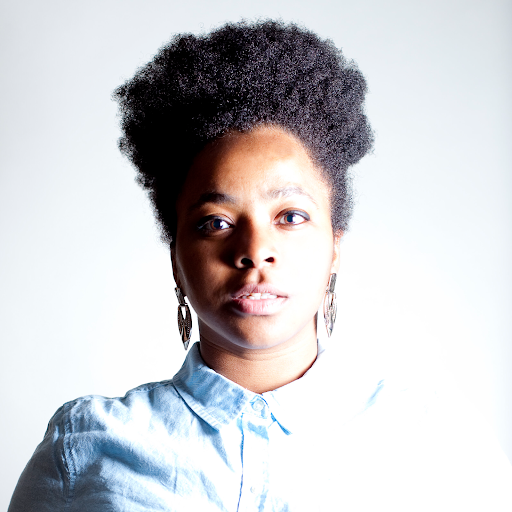
********
This selection of short features was curated and edited by imogen xtian smith.
Stephanie Acosta is an interdisciplinary artist, writer, and curator who places the materiality of the ephemeral at the center of her practice, questioning meaning-making and manufactured limitations, blending performance with practice-based and studio research. Engaging ensembles in facilitated processes, she creates fleeting performance works that examine site, space, and perception in shared experiences. Acosta has presented her works with and for Museum of Art and Design, Museum of Contemporary Art of Chicago, Chocolate Factory Theater, Knockdown Center, the Current Sessions, Miami Performance International Festival, Anatomy Collective, IN>Time Symposium, Abrons Arts Center, the Chicago Park District, the Performance Philosophy conference, AUNTS, Read/Write Library, No Media, and Radius. Acosta has collaborated with artist Miguel Gutierrez on multiple projects, including Cela nous concerne tous (This concerns all of us), commissioned for the Ballet de Lorraine in Nancy, France, and This Bridge Called My Ass, which premiered at the 2019 American Realness festival with a dynamic cast of Latinx performers. Their collaborative curatorial experiment Sunday Service ran live for six seasons. Recently Acosta redirected their multi-platform work Good Day God Damn at the Chocolate Factory Theater in Long Island City, NY, as a solo exhibition curated by Alexis Wilkinson in May 2021, which was accompanied by a mini-series talk show titled Apocalypse Talks, speaking with artists on themes of multi-crisis making and radical hope found in art practices.
Melissa Lozada-Oliva is the author of Dreaming Of You (Astra House 2021). Her work has been featured in Vogue, Harper’s Bazaar, NPR, Vulture, and more. She sings in a band called Meli & the Specs and she lives in Brooklyn. You can follow her everywhere except in real life at @ellomelissa.
Kimberly Alidio is a poet, historian, educator, and the author of three books and two chapbooks of poetry. Her latest manuscript is “Teeter,” a hybrid book of poetry and essayistic prose that arrives at a proposition for auto-historiography through theorizing time, the ambient, and the affective inherence of the tonal prosodies of a mother tongue one does not understand. “Teeter” is also a collection of collaged field recordings of speech & diegetic sound from an interval of stationing: a temporary stopping, holy place, assigned sentry point, or start of an accounting. Selections from “Teeter” appear in Harriet, Academy of American Poets Poem-a-day, Anamorphoseis, Apogee, Bæst, Foglifter, and Pleiades; and received the Bill Waller Award in Creative Nonfiction.
Adjua Gargi Nzinga Greaves is an artist guided by metaphysics, network science, ethnobotany, and the granular analytics of poetic inquiry. Supporters include Rauschenberg Residency, Artists Space, Issue Project Room, Montez Press at Matthew NYC, The Poetry Project, 4Columns, Hyperallergic, Belladonna*, Kore Press, Ugly Duckling Presse, and Brown University.
imogen xtian smith is a poet and performer. Their debut collection, Stemmy Things, is forthcoming from Nightboat Books (2022). They are an Emerge Surface Be Fellow at The Poetry Project and served as Nora Khan’s Editorial Fellow at Topical Cream. imogen lives and works on Lenape land, NYC.